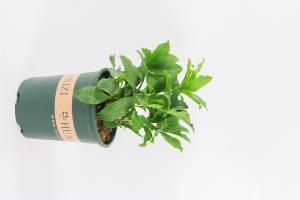Introduction
Tap water is the most convenient and readily available source of water for our homes, but did you know that it may contain harmful chemicals that are not ideal for plant growth? In this article, we will explore ways to make tap water safe and beneficial for your plants.
Identify the Chemical Content of Your Tap Water
The first step in making tap water good for plants is to understand its chemical content. Contact your local water supplier to request a water report. The report will provide details on the pH level, any mineral content, and the amount of chlorine and other added chemicals. This information will help you determine how to treat your tap water for your plants.
Allow Chlorine to Evaporate
Chlorine is a chemical commonly added to municipal water supplies to kill bacteria and other harmful organisms. However, it may also harm plant growth. To make tap water good for plants, allow the chlorine to evaporate by leaving it in an open container for at least 24 hours. The chlorine will dissipate as it interacts with the air, and your tap water will be chlorine-free and safe for your plants.
Use a Water Filter
A water filter can remove impurities and chemicals from tap water, including chlorine, lead, and copper. There are different types of filters available, such as activated carbon filters or reverse osmosis filters. You can attach the filter to your faucet, or you can use a pitcher with a built-in filter to filter your tap water. Using a water filter can help you provide clean and safe water for your plants.
Adjust the pH Level
The pH level of tap water may also affect plant growth. Most plants prefer a slightly acidic environment, with a pH range of 6.0 to 7.0. However, tap water may be too alkaline for some plants, causing them to develop yellow leaves or stunted growth. To adjust the pH level, you can add substances such as vinegar or lemon juice to the tap water. Alternatively, you can add powdered sulfur or aluminum sulfate to make the water more acidic. Always follow manufacturer instructions and use caution when handling these substances.
Use Distilled Water
Distilled water is free from minerals and chemicals commonly found in tap water, making it ideal for plants that are sensitive to these substances. You can purchase distilled water from grocery stores, or you can distill your own water at home using a distillation kit. However, distilled water may not be suitable for all types of plants, especially those that require minerals found in tap water.
Conclusion
Providing clean and safe water is essential for healthy plant growth. By following the tips above, you can make tap water good for your plants and help them thrive. Remember to identify the chemical content of your tap water, allow chlorine to evaporate, use a water filter, adjust the pH level, or use distilled water if needed. Happy gardening!

 how many times do yo...
how many times do yo... how many planted tre...
how many planted tre... how many pine trees ...
how many pine trees ... how many pecan trees...
how many pecan trees... how many plants comp...
how many plants comp... how many plants can ...
how many plants can ... how many plants and ...
how many plants and ... how many pepper plan...
how many pepper plan...































